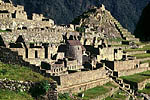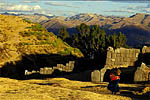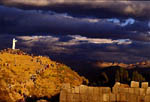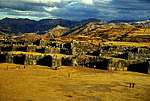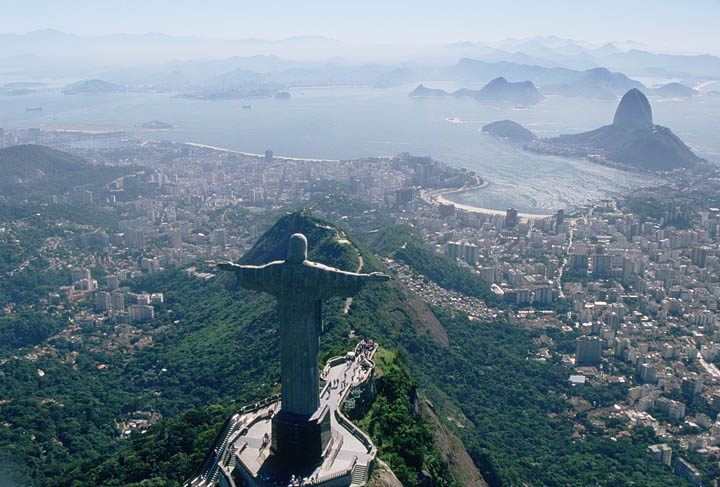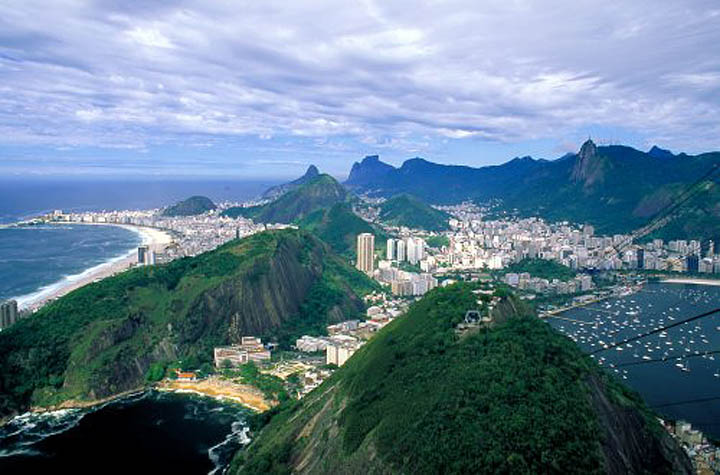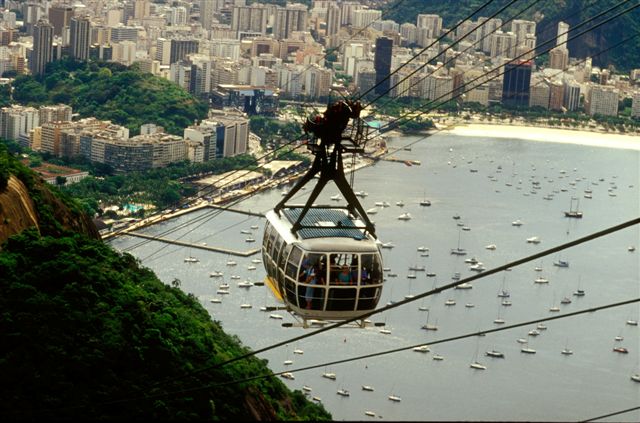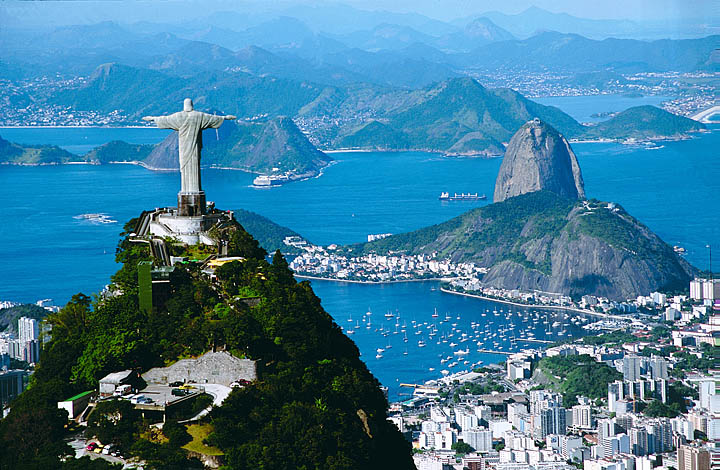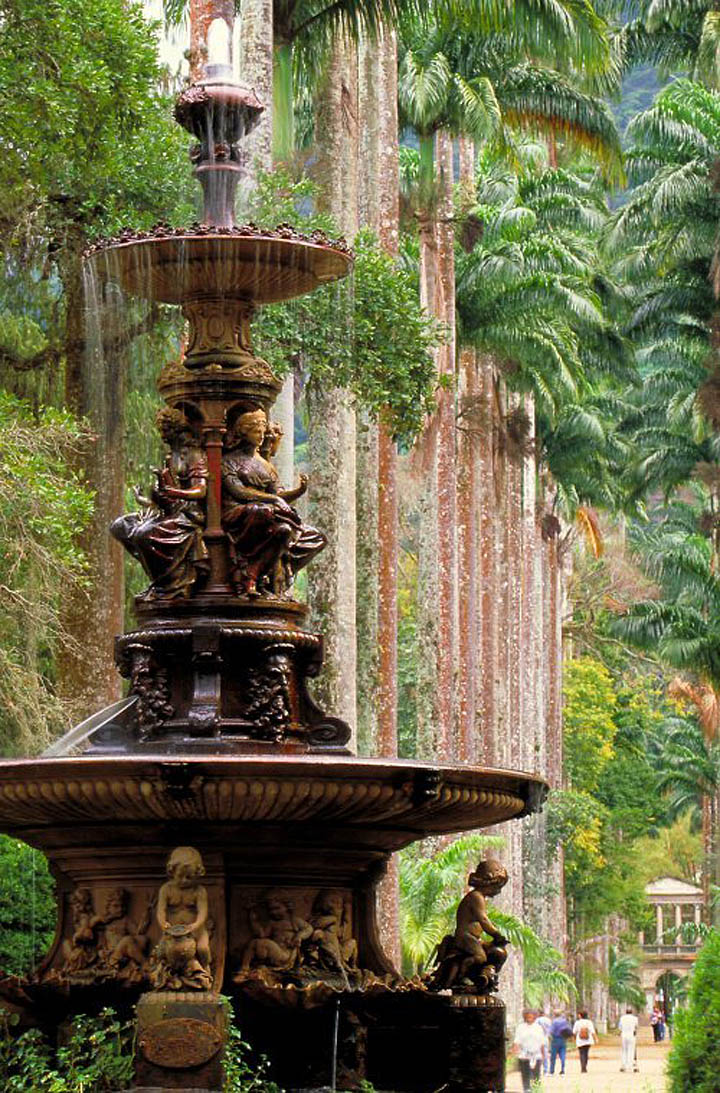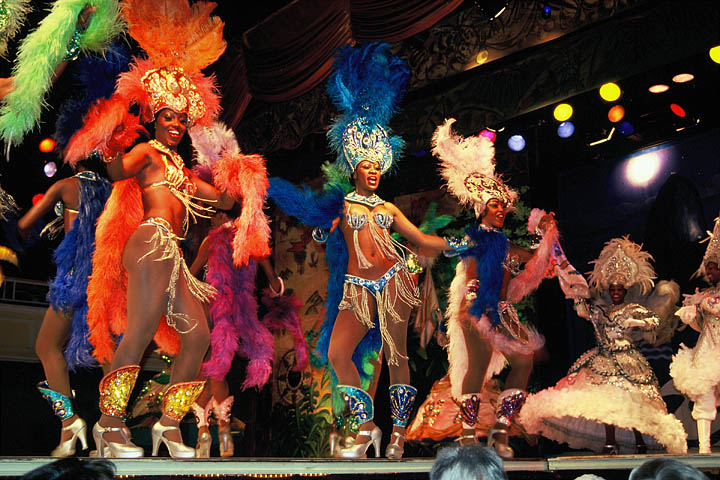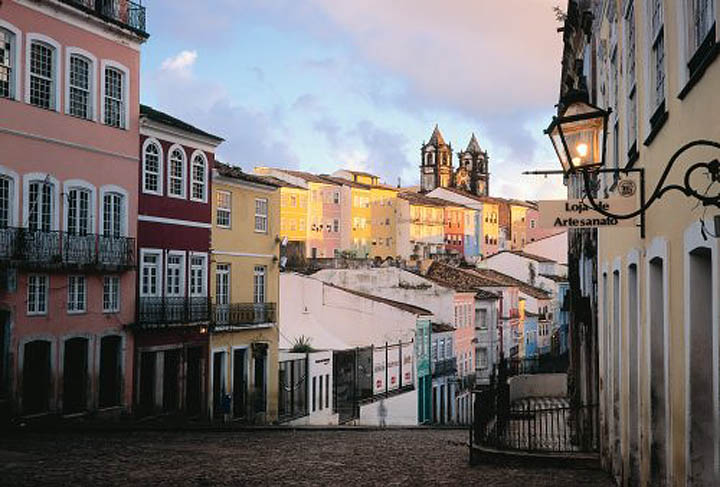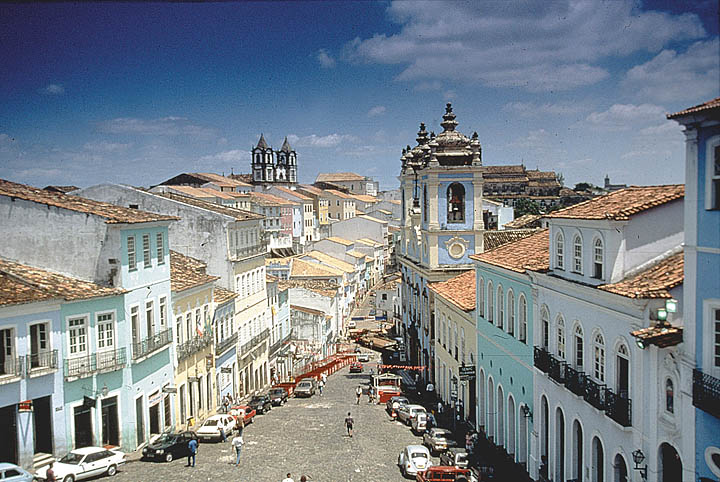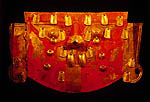![]()
Legacy of the Incas
Luxury Peru Tours & Travel
Peru:
Machu Picchu - Lake Titicaca
(11 days/10 nights)
Luxury Peru Tours & Travel
Peru:
Machu Picchu - Lake Titicaca
(12 days/11 nights)
Empire of the Sun
Luxury Peru Tours & Travel
Peru:
Machu Picchu - Lake Titicaca
(14 days/13 nights)
Ancient Civilizations of Peru
Luxury Peru Tours & Travel
Peru:
Colca Canyon - Machu Picchu
Lake Titicaca
(16 days/15 nights)
Archaeological & Ecological
Treasures
Luxury Peru Tours & Travel
Peru & Ecuador:
Galapagos - Machu Picchu
Lake Titicaca (or Amazon)
(18 days/17 nights)
Grand Tour of the Inca Empire
Luxury Peru Tours & Travel
Peru:
Colca Canyon - Amazon
Machu Picchu- Lake Titicaca
(22 days/21 nights)
Ancient & Colonial Capitals
Luxury Peru Tours & Travel
Peru:
Machu Picchu
(10 days/9 nights)
Inca Trail to Machu Picchu
Luxury Peru Tours & Travel
Peru:
Machu Picchu
(13 days/12 nights)
Machu Picchu & Galapagos
Luxury Peru Tours & Travel
Peru & Ecuador:
Machu Picchu - Galapagos
(15 days/14 nights)
Galapagos & Machu Picchus
Luxury Peru Tours & Travel
Ecuador & Peru:
Galapagos - Machu Picchu
(18 days/17 nights)
Enchanted Isles of the Galapagos
Luxury Peru Tours & Travel
Ecuador:
Galapagos
(11 days/10 nights)
Galapagos & the Kingdom of Quito
Luxury Peru Tours & Travel
Ecuador:
Galapagos - Andes
(16 days/15 nights)
Galapagos & the Amazon
Luxury Peru Tours & Travel
Ecuador:
Galapagos - Amazon
(16 days/15 nights)
Historic Haciendas of the Andes
Luxury Peru Tours & Travel
Ecuador:
Cotopaxi - Antisana - Otavalo
(7 days/6 nights)
© 2013 Inka's Empire Corporation.
All rights reserved.
![]()
Rio de Janeiro - Iguazu Falls - Salvador da Bahia
Luxury Brazil Tours & Travel
Corcovado Mountain (left) and Sugarloaf (right), Rio de Janeiro, Southeastern Brazil.
Photo: Ideia Tours. Luxury Brazil Tours & Luxury Brazil Travel.
Hot Rio nights, nature's grandeur and living history await…
Experience three world-heritage sites -- the "marvelous city" of Rio de Janeiro, the thundering cataracts of Iguazu Falls and the colonial charm of Salvador da Bahia. From a deluxe beach view room in one of the world's legendary hotels, the Copacabana Palace, to a deluxe falls' view room in Hotel das Cataratas and a junior suite in the four-century-old Convento do Carmo, our Brazilian Rendezvous will intrigue you at Brazil's iconic destinations. In each, you will enjoy the unsurpassed luxury of a masterly itinerary, private guides with chauffeurs, regal accommodations and gourmet cuisine. On this romantic getaway, hot Rio nights, nature's grandeur and living history await.
Land Price (10 days/9 nights)
De Luxe US$ 9,830 per person
The land price includes escorted transfers, private excursions (except boating excursions on Day 5 and Day 7), professional guides and chauffeurs, entrance fees, selected category of accommodations, gourmet cuisine (except drinks), all land and water transportation (except boating excursions on Day 5 and Day 7), and travel insurance for guests through the age of 59 years (over that age, there is a supplementary fee). All prices are per person based on two people sharing a guest room. For a detailed description of our services, see Opulent Itineraries. Visitors from the United States, Canada, Australia and New Zealand need a visa to enter Brazil. We recommend arrival on a Thursday or a Friday to avoid changes in the itinerary due to museum or restaurant closures.
Intra-Tour Flights & Fares
Air fares are in addition to the land price.
Rio - Iguazu Falls, Iguazu Falls - Salvador da Bahia & Salvador da Bahia - Rio
Samba dancer, Plataforma, Rio de Janeiro, Southeastern Brazil.
Photo: Ideia Tours. Luxury Brazil Tours & Luxury Brazil Travel.
Highlights
Rio de Janeiro
Day 1: International arrival in Rio de Janeiro. Arrival in Rio, reception and transfer to your hotel. Dinner at Cipriani. Overnight in the Copacabana Palace by Orient-Express -- Deluxe Beach View Room -- King Bed.
Day 2: Rio de Janeiro (Sugarloaf & Botanical Garden). The morning tour proceeds through the old Urca neighborhood towards the Sugarloaf, where a cable-car starts the steep, exhilarating 215-meter climb up Morro da Urca. From here, the cable-car travels high above the rugged, vegetated terrain to the Sugarloaf's 395-meter summit. Visitors can enjoy wonderful panoramic views over Rio de Janeiro from the top. Lunch at the Confeitaria Colombo, the oldest coffee shop in Rio de Janeiro, opened as a meeting point for intellectuals and aristocrats. Afternoon tour of the most impressive of Latin America's botanical gardens and one of the finest in the world, the Jardim Botânico do Rio de Janeiro. Laid out during the 19th century in the heart of the city, these lush, spacious gardens are an oasis of calm in the middle of a buzzing metropolis. Visitors are met with an astounding array of native and foreign plant species (about 6,200 in all), some of which grow to gigantic proportions in this ecological paradise. Tonight, dinner and music at Rio Scenarium. Overnight in the Copacabana Palace by Orient-Express -- Deluxe Beach View Room -- King Bed.
Day 3: Rio de Janeiro (Old Rio & Corcovado). Rio is one of the world's most historically and culturally significant cities, its rich heritage being reflected in the countless monuments within the metropolitan area. Among those included in the afternoon tour of Old Rio is the Mosteiro de São Bento, a World Heritage Monument and probably the most beautiful example of Brazilian Baroque and Rococo architecture. After lunch at Riso, Galería de Arte e Bistrô, the tour continues on to Corcovado. Perched atop the mountain, the statue of Christ the Redeemer is one of the world's best-known and most-visited monuments, one that offers breathtaking views of the city. In the evening, gourmet French cuisine at Chef Claude Troisgros' Olympe. After dinner, a taste of Carnival, with Samba school drummers and dancers in lavish costume, presenting the best of Brazil in an alluring, glittering show at Plataforma. Overnight in the Copacabana Palace by Orient-Express -- Deluxe Beach View Room -- King Bed.
Iguazu Falls
Intra-tour flight Rio de Janeiro - Foz do Iguaçu, Day 4, 10:10 am - 12:10 am, G31460
Day 4: Rio - Iguazu Falls (Bird Park). Transfer to the airport. Flight to Iguazu Falls, reception and drive to La Rueda for lunch before continuing to the Parque das Aves (Bird Park), where rare and colorful birds fly in huge aviaries. Guests are able to enter these aviaries and view the birds at close quarters as well as see alligators, anacondas, pythons, marmosets and butterflies. Arrival at Iguazu Falls, considered by many the most spectacular waterfall in the world, perhaps because of the more than 200 streams that suddenly appear from the rainforest to form a myriad of cataracts, large and small, which mingle and blend so graciously with the surrounding vegetation. For this reason, the falls have been declared a World Heritage Site. Just a short stroll away is your hotel, the beautiful Portuguese-colonial style Hotel das Cataratas by Orient-Express. Dinner on the veranda of the hotel's Itaipu Restaurant or adjacent to the pool in the Ipê Grill. Overnight in Hotel das Cataratas by Orient-Express -- De Luxe Room with Falls View -- King Bed.
Day 5: Iguazu Falls (Argentine Side). Full-day visit of the Argentine side of Iguazu National Park. Walking with a naturalist guide on the Yacaratia Trail, guests will observe the incredible diversity of plants and animals as well as the many beautiful cataracts. Lunch at Garganta del Diablo. In addition to the walk, there will be a shared navigation to reach the falls. Dinner and overnight in Hotel das Cataratas by Orient-Express -- De Luxe Room with Falls View -- King Bed.
Salvador da Bahia
Intra-tour flight Foz do Iguaçu - São Paolo, Day 6, 3:40 pm - 4:40 pm, JJ3886
Intra tour flight São Paolo - Salvador da Bahia, Day 6, 5:22 pm - 8:04 pm, JJ3858
Day 6: Iguazu Falls (Brazilian Side) - Salvador da Bahia. Morning walking excursion on the Brazilian side of Iguazu Falls. Lunch at Cuisine du Ciel before your flight to Salvador da Bahia. Reception and transfer to the Convento do Carmo, a former convent that dates back to 1586. Dinner and overnight in the Convento do Carmo -- Junior Suite-- King Bed.
Day 7: Salvador da Bahia (Colonial Quarter & Folkloric Show). Full-day historical and panoramic tour of Salvador. By far the most significant site visited during the excursion is the cobblestoned Pelourinho district -- the heart of Salvador’s Old Town. This World Heritage Site is considered by Unesco a highlight of XVII and XVIII century colonial architecture. Lunch at Amado. In the afternoon, the excursion proceeds to offer to guests various beautiful panoramic views of the city. Visitors then go to the Mercado Modelo, Bahia's largest arts and crafts center. Tonight, an impressive folkloric show by the renowned Balé Folclórico da Bahia. In Salvador, the dances and musical styles are more traditional, religious, mystical and African, in contrast to the show in Rio, which is focused on the Samba. After the show, a dinner at María Mata Mouro. Overnight in the Convento do Carmo -- Junior Suite-- King Bed.
Day 8: Salvador da Bahia (Island Schooner Excursion). At the harbor, depart with other passengers on a schooner for an all-day tropical island excursion. At Ilha dos Frades, we drop anchor at Praia de Ponta de Nossa Senhora and spend two hours relaxing and swimming. Afterward, we arrive at Ponta de Areia on Ilha de Itaparica, the largest island in the bay, to taste delicious Bahian cuisine at the Kirymuré restaurant, watch a Capoeira show and enjoy the beach. As the sun sets, passengers return to the schooner for the trip back to the port of Salvador. Return to the hotel. Dinner and overnight in the Convento do Carmo -- Junior Suite-- King Bed.
Rio de Janeiro
Intra-tour flight Salvador da Bahia - Rio de Janeiro, Day 9, 12:09 pm - 2:24 pm, O66213
International departure from Rio de Janeiro, Day 9, approximately 6:00 pm
Day 9: Salvador da Bahia - Rio de Janeiro. Transfer to the airport for your flight to Rio de Janeiro and connection home.
Home
Day 10: Rio de Janeiro - Home. Overnight flight and arrival home.
View of Rio de Janeiro, Southeastern Brazil.
Photo: Ideia Tours. Luxury Brazil Tours & Luxury Brazil Travel.
Details
Day 1: International arrival in Rio de Janeiro
Breakfast. Arrival in Rio, reception and transfer to the country's (and South America's) finest and most famous hotel: Orient-Express' Copacabana Palace, overlooking Copacabana Beach. Dinner of Northern Italian cuisine at Chef Franceso Carli's Cipriani Restaurant. Carli previously worked in Orient-Express' Hotel Cipriani in Venice. Overnight in the Copacabana Palace.
Cable car to the top of Sugarloaf, Rio de Janeiro, Southeastern Brazil.
Photo: Mylene d'Auriol Stoessel. Luxury Brazil Tours & Luxury Brazil Travel.
Rio de Janeiro, the Marvelous City
With a dreamlike beauty that exceeds even the greatest of expectations, Rio is a city that has to be seen to be believed. Take the train up the Corcovado to see the breathtaking view beneath Christ's outstretched arms or the cable car to the top of the famous Sugarloaf to see the spectacular landforms that embrace the sandy beaches, glittering bays, fine residential districts and towering forest-covered mountains of the Cidade Maravilhosa (Marvelous City). The landscape is so dramatic that even the largest areas of modern high-rises are still dwarfed by the overwhelming grandeur of numerous peaks and the largest urban tropical forest in the world, itself a monument to environmental preservation.
From the city center, where the history of imperial Brazil began, through the classic elegance of Copacabana and contemporary sophistication of Ipanema and Leblon to the ultra-modern development of Barra da Tijuca, Rio de Janeiro has many faces that include Rocinha, the world's largest shanty settlement and Santa Teresa, where streetcars still climb the winding, cobblestone streets through this mountainside artists' district.
The natives of Rio, or cariocas, are famous for proudly mirroring the city's qualities in their daily pursuit of health, beauty and elegance: the seafront, lakeside and Tijuca Forest Park are always favorite destinations for exercising or simply enjoying the natural delights that their extraordinary city has to offer.
The cradle of the Brazilian empire, independence and republic; Rio de Janeiro's immense historical wealth of fine buildings, palaces, theaters and museums complements her natural splendor. The arts, folklore and popular music reflect Rio's cultural abundance in the form of leading galleries, the internationally famous Carnival and Samba schools, and Bossa Nova, immortalized by the most famous cariocas, Tom Jobim and Vinícius de Moraes.
View of Corcovado and Sugarloaf, Rio de Janeiro, Southeastern Brazil.
Photo: Ideia Tours. Luxury Brazil Tours & Luxury Brazil Travel.
Day 2: Rio de Janeiro (Sugarloaf & Botanical Garden)
Breakfast. The first stage of the tour takes in a number of sites of interest in downtown Rio de Janeiro offering lovely views of Rio and the Sugarloaf. The tour then proceeds through the old Urca neighborhood toward the Sugarloaf, where a cable-car starts the steep, exhilarating 215-meter climb up Morro da Urca. From here, the cable-car travels high above the rugged, vegetated terrain to the Sugarloaf's 395-meter summit. Visitors can enjoy wonderful panoramic views over Rio de Janeiro from the top, sunsets being particularly spectacular.
The tour proceeds for lunch at the Confeitaria Colombo, the oldest coffee shop in Rio de Janeiro, opened as a meeting point for intellectuals and aristocrats. Built in 1894 and refurbished in 1914, it is a living portrait of Rio's Belle Époque, retaining much of its Art Nouveau charm, with famous Belgian mirrors in hardwood frames and lovingly-preserved Italian marble benches.
Afternoon tour of the most impressive of Latin America's botanical gardens and one of the finest in the world, the Jardim Botânico do Rio de Janeiro. Laid out during the 19th century in the heart of the city, these lush, spacious gardens are an oasis of calm in the middle of a buzzing metropolis. Visitors are met with an astounding array of native and foreign plant species (about 6,200 in all), some of which grow to gigantic proportions in this ecological paradise. Tamarins (small omnivores related to monkeys) and a myriad of colorful bird species thrive amongst the flamboyant vegetation. The tour proceeds on foot to appreciate the sights around the park, revealing some rich historical and cultural heritage such as the old gunpowder factory and the Solar da Imperatriz, home to the National School of Tropical Botany, the first of its kind in Latin America. The tour ends in the Sao Cristovão district, where the Quinta da Boa Vista, once the residence of the Portuguese Royal family, is located. Within its compound, the "Quinta" houses the National Museum of Natural History, once called "The Tropical Versailles" because of its architecture. Although a visit to the museum is not included, one can be arranged on request.
Tonight, dinner and music at Rio Scenarium. Overnight in the Copacabana Palace.
Jardím Botánico de Río de Janeiro, Southeastern Brazil.
Photo: Ideia Tours. Luxury Brazil Tours & Luxury Brazil Travel.
Day 3: Rio de Janeiro (Old Rio & Corcovado)
Breakfast. Rio de Janeiro is one of the world's most historically and culturally significant cities, its rich heritage being reflected in the countless monuments within the metropolitan area. This morning, visit the Mosteiro de São Bento, a World Heritage Monument and probably the most beautiful example of Brazilian Baroque and Rococo architecture. With a simple, sober façade and magnificent carvings and paintings within, the monastery is still in operation, holding traditional services each Sunday with monks performing Gregorian chants. Igreja de Nossa Senhora da Candelária (1775) is the biggest colonial church in Rio, founded in 1609 by Portuguese immigrants. The interior of the church is in Neoclassical style, the cupola having been finished only in 1898. The Centro Cultural do Banco do Brasil is an imposing domed building that dates back to the late 19th century. It has a cinema with high-quality art films, contemporary theatre and a large exhibition of fine arts and photography.
Built in 1743, the modest Paço Imperial was the headquarters of the Portuguese government. It was here that Dom João VI established his court in 1808; Dom Pedro I announced his refusal to join his father back in Portugal in 1822 and Princess Isabel proclaimed the end of slavery in Brazil in 1888. The building still retains its original colonial structure after numerous restorations, the most recent being its conversion into an arts center. The tour ends at the marvellous Museu Nacional de Belas Artes (The National Museum of Fine Arts), where the works of Brazil's greatest artists are on display.
After lunch at Riso, Galería de Arte e Bistrô, the tour continues on to Corcovado. Perched atop the mountain at an altitude of 710 meters, the statue of Christ the Redeemer is certainly one of the world's best-known and most-visited monuments. Clad with a soapstone mosaic, the statue is also one of Rio's finest Art Nouveau monuments and at night becomes a shining landmark visible from all over the city. From the top there are breathtaking views of the city.
Samba show, Plataforma, Rio de Janeiro, Southeastern Brazil.
Photo: Ideia Tours. Luxury Brazil Tours & Luxury Brazil Travel.
A rack railway takes the visitor up to the foot of the statue, the train leaving the Cosme Velho district and climbing the steep slopes of Tijuca Forest. Located around the base of Corcovado and with many springs and waterfalls, this dense forest was proclaimed a national park in the early sixties.
In the evening, gourmet French cuisine at Chef Claude Troisgros' Olympe. The all-Brazilian ingredients are a unique trait of this innovative restaurant that blends native flavors with nouvelle techniques. Every dish is exceptionally light. The passion-fruit mousse is a favorite dessert. After dinner, a taste of Carnival, with Samba school drummers and dancers in lavish costume, presenting the best of Brazil in an alluring, glittering show at Plataforma. Overnight in the Copacabana Palace.
Iguazu Falls, Southern Brazil.
Photo: Ideia Tours. Luxury Brazil Tours & Luxury Brazil Travel.
Day 4: Rio de Janeiro - Iguazu Falls (Bird Park)
Breakfast. Transfer to the domestic airport for the flight to Foz de Iguaçu. Reception and transfer to La Rueda for lunch. Afterward, visit the Parque das Aves (Bird Park), where rare and colorful birds fly in huge aviaries built to blend in with the humid, subtropical forest. Visitors are able to enter these aviaries and view the birds at close quarters. You will also see alligators, anacondas, pythons, marmosets and butterflies. Arrival at Iguazu Falls, considered by many the most spectacular waterfall in the world, perhaps because of the more than 200 streams that suddenly appear from the rainforest to form a myriad of cataracts, large and small, which mingle and blend so graciously with the surrounding vegetation. For this reason, the falls have been declared a World Heritage Site. Just a short stroll away is your hotel, the beautiful Portuguese-colonial style Hotel das Cataratas by Orient-Express. Dinner of Brazilian-international fusion cuisine on the veranda of the hotel's Itaipu Restaurant or international dishes adjacent to the pool in the Ipê Grill. Overnight in Hotel das Cataratas
Parque das Aves, Iguazu Falls, Southern Brazil.
Video: Parque das Aves. Luxury Brazil Tours & Luxury Brazil Travel.
Day 5: Iguazu Falls (Argentine Side)
Breakfast. Full-day visit of the Argentine side of Iguazu National Park. The park, a World Heritage Site, extends over 220,000 acres (67,000 hectares) and protects one of the areas of greatest biological diversity in the country: the Paranaense subtropical rainforest, a continuation of the southern Brazilian jungle. It has more than 2,100 known plant species. The rainforest, with a canopy exceeding 120 feet in height, is a natural frame for the spectacular Iguazu Falls, composed of more than 270 individual waterfalls. Surrounding them are jungle paths, where a variety of wildlife is frequently encountered. Walking with a naturalist guide on the Yacaratia Trail, guests will observe the incredible diversity of plants and animals as well as the many beautiful cataracts stretching for several miles along the river. Enjoy lunch at Garganta del Diablo. In addition to the walk, there will be a shared navigation to reach the falls and a crossing to San Martín Island. Dinner and overnight in Hotel das Cataratas.
Iguazu Falls, Southern Brazil.
Video: blueplanetvideos.com. Luxury Brazil Tours & Luxury Brazil Travel.
Day 6: Iguazu Falls (Brazilian Side) - Salvador da Bahia
Breakfast. Morning walking excursion on the Brazilian side of Iguazu Falls. Lunch at Cuisine du Ciel before a transfer to the airport for the flight to Salvador da Bahia, originally called São Salvador da Bahia de Todos os Santos, in English: "Holy Savior of All Saints' Bay"). Reception and transfer to the historic Convento do Carmo. The Convent, initially built in 1586 by the First Order of Carmelite Friars, has been throughout the centuries the stage for many significant events of Brazilian history. Nowadays, after careful restoration, it is the most luxurious hotel in the city. Within the convent’s whitewashed stone walls, tranquility awaits. Graceful cloisters are atwitter with birds. Pitched-beam ceilings and 19th-century antiques evoke Salvador’s past. A small spa offers an impressive range of treatments, and the central courtyard, with its lovely stone fountain transformed into a wading pool, is an ideal place to relax over a caipirinha with lime and maracujá (passion fruit). Dinner and overnight in the Convento do Carmo.
Pelourinho district, Salvador da Bahia, Northeastern Brazil.
Photo: Ideia Tours. Luxury Brazil Tours & Luxury Brazil Travel.
Day 7: Salvador da Bahia (Colonial Quarter & Folkloric Show)
Breakfast. Full-day historical and panoramic tour of Salvador. This charming excursion first takes guests through the historical heart of the city -- the Cidade Alta, revealing some of the first streets laid in Bahia. The excursion begins at Farol da Barra, a lighthouse that now functions as the city's nautical museum. The excursion then proceeds in the direction of Porto da Barra, from where one can see the Santa Maria and São Diogo forts. From here, the tour moves on to Salvador's more traditional neighborhoods, namely Corredor da Vitória, Campo Grande and Piedade. By far the most significant site visited during the excursion is the Pelourinho, the historical center and a World Heritage Site, considered by Unesco to be a highlight of 17th and 18th century colonial architecture. Clinging to the steep terrain, the picturesque colonial houses and churches (such as the Igreja do São Francisco), artistically decorated in a myriad of colors, make this enchanting part of town a must for anyone visiting Bahia. Lunch at Amado. In the afternoon, the excursion proceeds to offer to guests various beautiful panoramic views of the city, plus the famous Bonfim Church, which hosts a range of religious events, the most important, perhaps, being the Lavagem do Bonfim, or washing of the steps. Guests then go to the Mercado Modelo, Bahia's largest arts and crafts center.
Tonight, an impressive folkloric show by the renowned Balé Folclórico da Bahia at the Teatro Miguel Santana. The theater is set in a beautiful 18th century architectural complex comprising a main house (Casa Grande), a chapel and outlying slave quarters. In Salvador, the dances and musical styles are more traditional, religious, mystical and African, in contrast to the show in Rio, which is focused on the Samba. After the show, a dinner at María Mata Mouro. Return to your hotel. Overnight in the Convento do Carmo.
Balé Folclórico da Bahia at Teatro Miguel Santana, Salvador da Bahia, Northeastern Brazil.
Video: Balé Folclórico da Bahia. Luxury Brazil Tours & Luxury Brazil Travel.
Day 8: Salvador da Bahia (Island Schooner Excursion)
Breakfast. At the harbor, depart with other passengers on a schooner for an all-day tropical island excursion with exotic fruit, live music and a bar on board (drinks not included). Bahia de Todos os Santos (Bay of All Saints) is one of the most beautiful bays in Brazil and certainly the largest. It has many tropical islands with paradisial beaches and vegetation. At Ilha dos Frades, which has the shape of a 15-point star, we drop anchor at Praia de Ponta de Nossa Senhora and spend two hours relaxing and swimming in the warm, clear waters of one of the pristine beaches. On this island, slaves coming from Africa were placed in quarantine to gain weight before being sold in the city. Afterward, we arrive at Ponta de Areia on Ilha de Itaparica, the largest island in the bay, to taste delicious Bahian cuisine at the Kirymuré restaurant, watch a Capoeira show and enjoy the beach. As the sun sets, passengers return to the schooner for the trip back to the port of Salvador. Transfer to the hotel. Tonight, an impressive folkloric show by the renowned Balé Folclórico da Bahia at the Teatro Miguel Santana. The theater is set in a beautiful 18th century architectural complex comprising a main house (Casa Grande), a chapel and outlying slave quarters. In Salvador, the dances and musical styles are more traditional, religious, mystical and African, in contrast to the show in Rio, which is focused on the Samba. After the show, a dinner at María Mata Mouro. Return to your hotel. Dinner and overnight in the Convento do Carmo.
Pelourinho district, Salvador da Bahia, Northeastern Brazil.
Photo: Ideia Tours. Luxury Brazil Tours & Luxury Brazil Travel.
Day 9: Salvador da Bahia - Rio de Janeiro
Breakfast. Transfer to the airport for your flight to Rio de Janeiro and connection home.
Day 10: Rio de Janeiro - Home
Overnight flight and arrival home.
© 2013 Inka's Empire Corporation, Machu Picchu Luxury Tours. All rights reserved.

